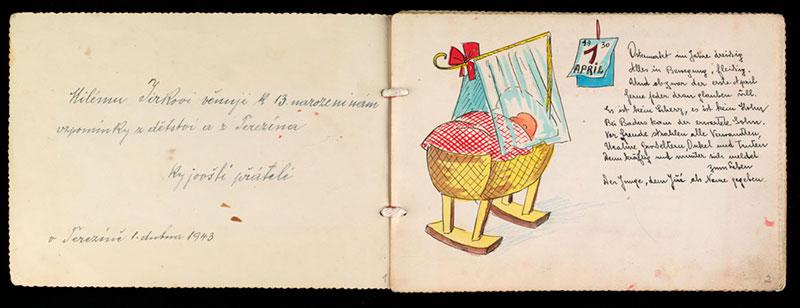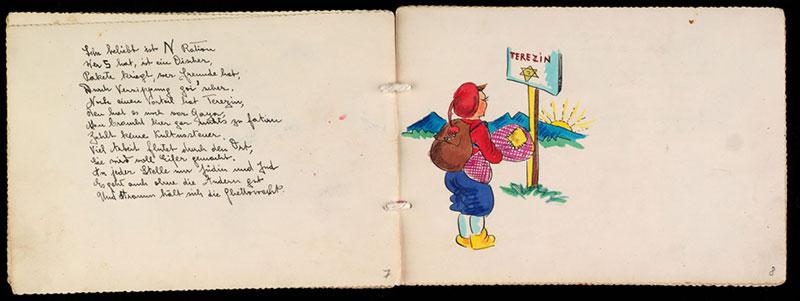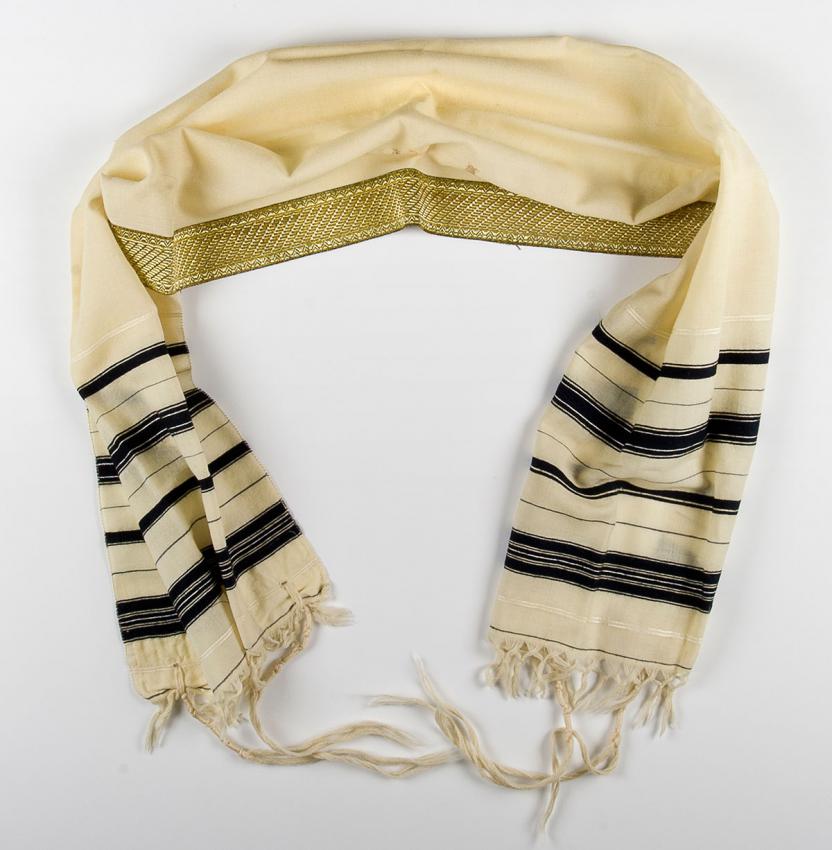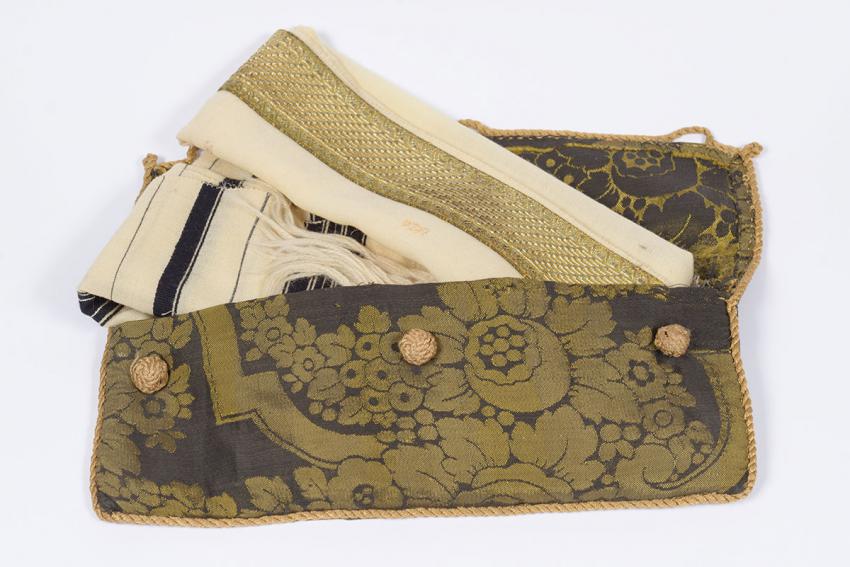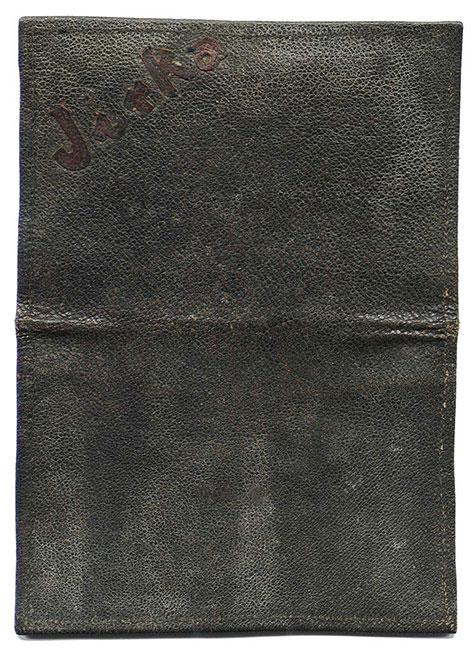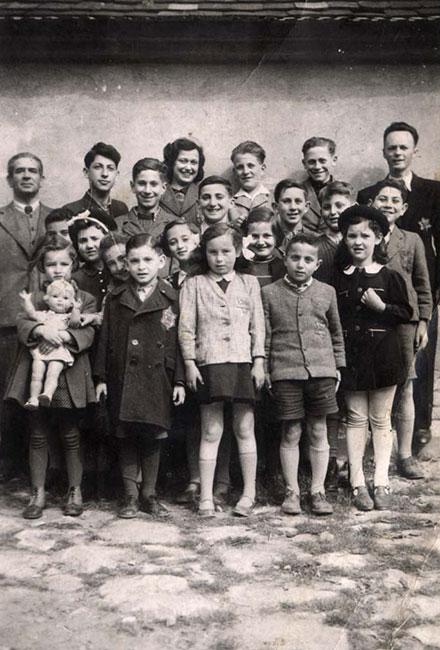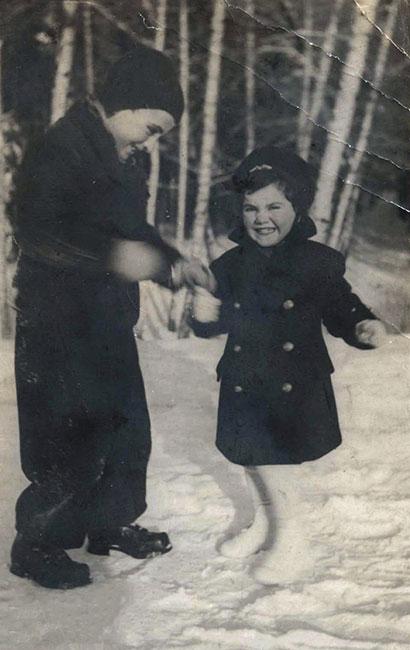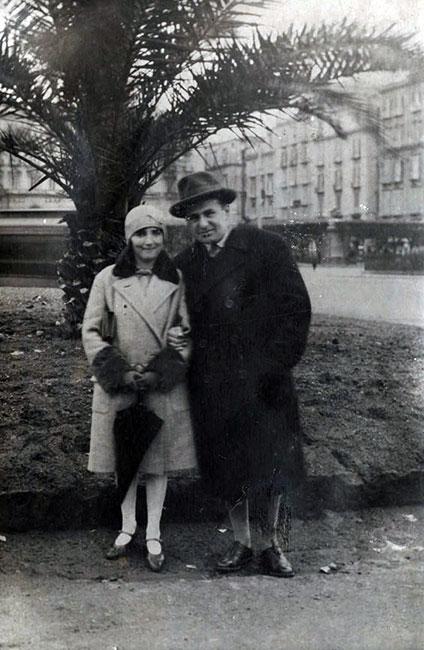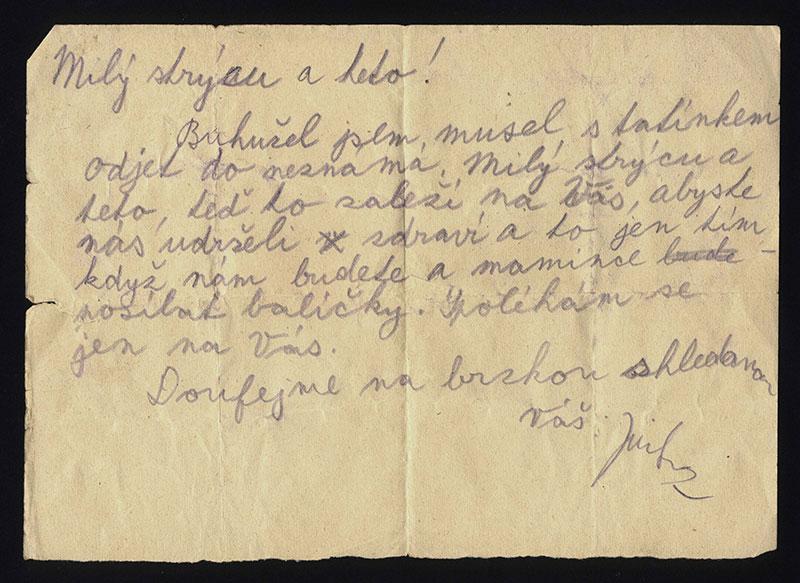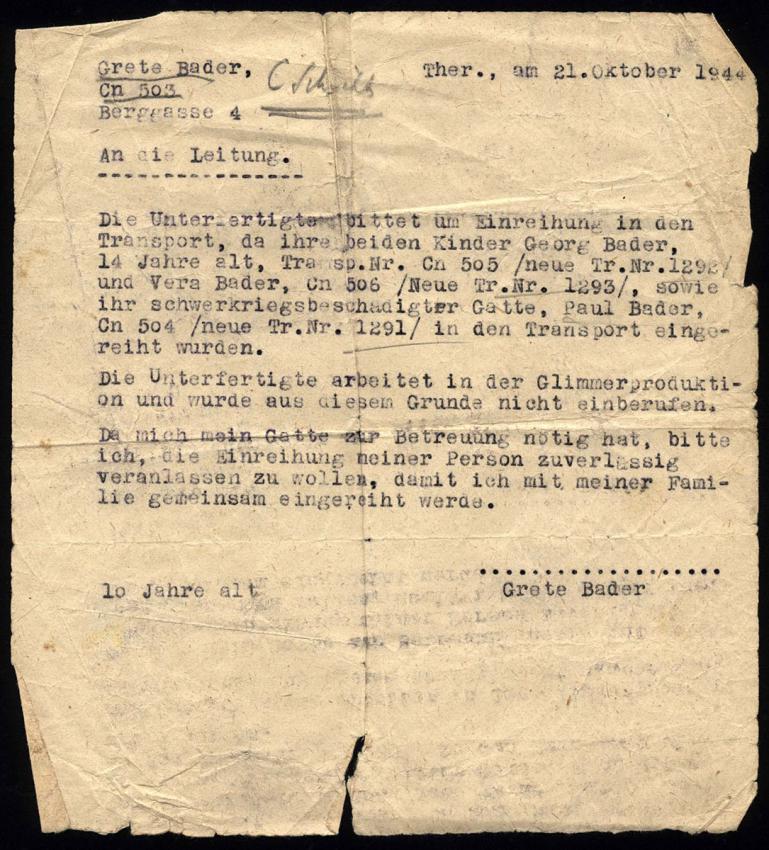Jiri (Georg) Bader was born in April, 1930 in Kyjov, Czechoslovakia to Pavel & Grete Bader. Four years later his sister Vera was born. The Bader family led a traditional Jewish lifestyle and owned a store that enabled them to live comfortably. In January 1943, just two months before Jiri’s Bar Mitzva, the Bader family was deported to Theresienstadt along with the rest of the Jews of Kyjov. In light of this upheaval in their lives, it was impossible to celebrate Jiri’s Bar Mitzva on time.
In April 1944, when Jiri was 14, they were finally able to mark the occasion in the ghetto youth club. In spite of the restrictions and difficult conditions, Jiri's family and friends prepared gifts for him: he received an album illustrated by the talented caricaturist Max Placek with his life-story in words and pictures, a prayer shawl and its cloth bag that was made from fabric remnants, and a leather wallet made in one of the ghetto workshops. Six months after the Bar Mitzva celebration, Jiri, Vera and their father Pavel were ordered to report for deportation.
Their mother Grete, who worked in a factory as an “essential worker for the Nazi war effort”, pleaded in vain to be allowed to join her family on the transport out of Theresienstadt. She remained in the ghetto, and decided that Vera would not report for deportation, but would stay with her. Jiri and Pavel were deported to Auschwitz, where they were murdered.
In her testimony, Vera described their predicament following the deportation order:
“The names of father, Jiri and myself appeared on the transport list of the 23rd of October, 1944. Mother, who worked for the aircraft industry, was exempt from the list but she ran to the Aeltestenrat time and again to request that she be allowed to join us. Her plea was denied. We were told that we were being taken to a labor camp – similar to Theresienstadt (even then they didn’t know about Auschwitz and that the transport was being sent there). I was hidden (I don’t know how). I wanted very much to join father and Jiri because all my friends were on that transport (I was 10 or 11 at the time). I was present at the discussion between mother and father regarding Jiri, and remember it clearly: Father wanted Jiri to go with him – Jiri was already old enough to work, and it would be easier if the two were together as they could help each other – and mother agreed. I stayed with mother and went to work with her. I worked with her and also acted as a messenger; mother never allowed me out of her sight.”
Vera and her mother survived the war and returned to their family home in Kyjov, where Vera still lives. They preserved many possessions from their time in Theresienstadt, and over the years Vera has donated many of them to the Artifacts Collection.
In a final letter that Jiri sent to his uncle, who was still in Prague, he wrote:
“Dear Aunt and Uncle,
Unfortunately, Father and I have been forced to travel to an unknown destination. Dear Aunt and Uncle, now it is up to you to keep us healthy by sending small packages to us and to mother. We’re relying on you.
We hope to see you soon,
Yours,
Jiri”
Yad Vashem Artifacts Collection, Gift of Vera (Bader) Weberova, Kyjov, Czech Republic
